Rat Control of Tacoma
Welcome to Rat Control of Tacoma! We are Washington rodent control specialists. Our specialty is rat and mouse control. Our special 32-point process is the single most effective method in the country for permanently solving rodent problems inside houses and buildings. We are not a typical pest control Tacoma rodent exterminator company that treats rodents in a similar way to insects, with repeated monthly or quarterly poison treatments. That's a never-ending process. We solve the problem ONCE, and PERMANENTLY, by thoroughly inspecting every component of your building and completely sealing shut all access points, to 100% rodent-proof your house. We physically trap and remove all rats or mice, a process that is completely effective once all access has been closed. The problem is soved forever, usually in a week or less. Click on our Tacoma Prices page to find out more about our prices for rat control work. Or give us a call any time to schedule an appointment, usually within the next day. We look forward to hearing from you.
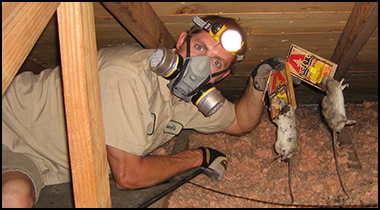
Tacoma Rat Trapping

Rodent-Proofing Repairs
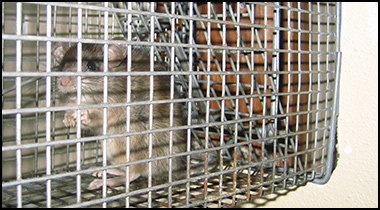
Humane Exclusion Options
Call 24/7 to discuss your rat problem.
Same-day or next-day appointments: 253-458-2116
32-point inspection of your property.
Written estimates for rat project.
Fully Washington licensed and insured.
Rat-proofing repairs with steel.
100% of rodents trapped and removed.
Chewed wire and damage repair services.
Rat dropping cleanup and sanitation services.
Poison-free rodent control methods.
Our Service Range - 253-458-2116
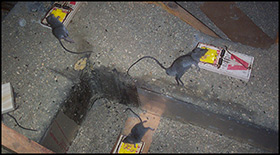
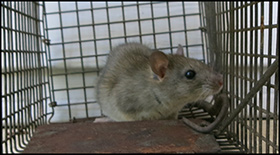
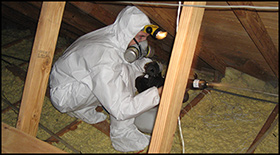
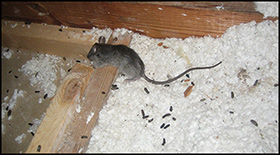
The only thing that beats having rats in a house is having dead rats in the house. This is because even if you may not have noticed a rat in the house in the first place, a dead rat will not be that easy to miss, in fact, you will either know or know that a rat has died in your house; there are no two ways about that.
The first sign that will bring a dead rat in your house to your attention is the nasty smell of rotting carcass. This is also one of the ways in which you will find the dead rat. This smell will indicate the direction in which the carcass might be especially in the early days when the smell is just starting out; before it becomes so bad and fills up the entire house and making it impossible to pinpoint the exact location.
Once you have located the rat, you will need t take it out while taking the necessary precautions.these precautions include wearing thick gloves and a mask to protect yourself from any hazardous waste coming from the carcass. You will also need to use an enzyme based cleaning solution to eliminate the hazardous waste efficiently.
Rats will often die in seclusion and this can be within walls or somewhere hidden in the attic. Getting the dead rat out of the wall will require you to cut into the wall and take it out. You may need to lower a mirror or a camera into the wall just to see where exactly the rat is and then cut out a hole through which you will remove it.
In case the rat is in the attic, you may either find it easily, hiding under insulation for instance or in a more difficult space to access. In such a situation, you will need to either access the rat through the ceiling of the room that is located right underneath the attic or the spot where it died.
The procedure for all these situations once you have found the dead carcass is to spray it with the enzyme based cleaning solution and then pick it up while wearing the thick protective gloves. You will need to place it in a thick polythene bag and seal it off completely. This should then be taken for incineration.
You should also clean out all the maggots that come with the rotting carcass before if not they will grow into flies and cause you further headache. That and also because maggots are disgusting and you wouldn't want them crawling around your house aimlessly. Cleaning up everything else once you have taken out the dead rat will help get rid of any disease causing organisms that may have been attracted to the rat's carcass leaving your home safe from potentially infectious diseases.
Preventing rats from coming into the house is much easier than getting them out whether they are dead or alive and you should aim to prevent rather than solve future problems.

